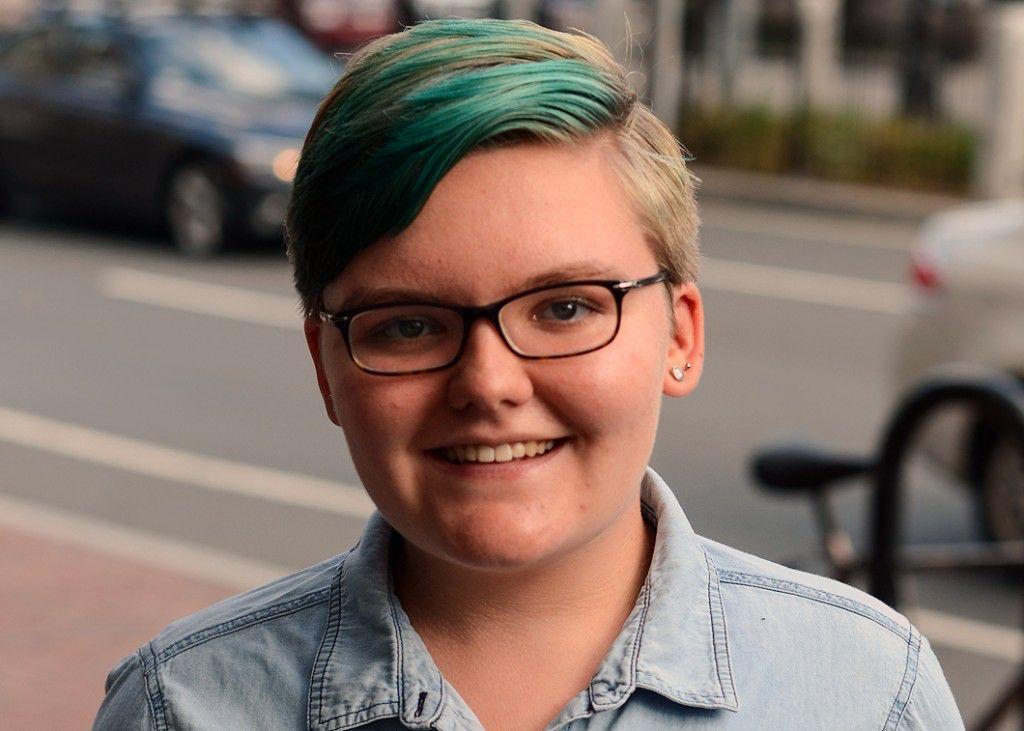In the first class of my FY103 class “Identity, Empowerment and Social Justice,” taught by the lovely and fabulous Christian Cho and Stacy Ulrich, we talked about “transformative practices.” Basically, transformative practices are a list of guidelines designed by Visions Inc. to use and remember while we have difficult and deeply personal conversations, mostly about identities.
One of these transformative practices especially resonated with me: Make room for others’ wisdom and learning.
So with that in mind, I write my letter.
To the people who want to be allies (and would make good ones), but don’t know where to start: it can be overwhelming. There’s a lot of new ideas, lots of new language, lots of new everything. Make room for wisdom.
Do not try to fight, argue or rationalize another person’s experience. Learn to understand that you may not be able to understand someone’s situation, but respect that his or her experiences are still valid. Do not get defensive. Listen. Reflect. Think more critically, not only about yourself, but also about the people around you.
Ask questions respectfully. Think about what you are asking, why you are asking it and to whom you are asking. Is there another source where you could find out the information, maybe a pamphlet or a website? Are you asking a personal question solely out of curiosity or to gain a better understanding of the world at large? Could you ask a well-informed ally instead and receive the same information?
Also remember that you don’t have to know or understand anything that goes on in our (LGBTQ+ people) bedrooms to understand and interact with us on an everyday basis. That stuff is personal and private, and if you wouldn’t ask a straight friend, it’s inappropriate to ask anyone else.
Don’t expect to be handed a medal for being a decent human being. Being an ally is work, and there’s no added bonus. Do it because you want to be a good human being and believe in equality and decent treatment for all people.
To LGBTQ+ people: I know this might be controversial, but make room for learning. Yes, it’s annoying when people ask stupid, obvious or ignorant questions. Yes, it shouldn’t be your job to educate them. But you can’t shut them off. You can’t turn away people who are attempting to learn. You can’t turn away potential allies.
It shouldn’t be your job to educate them, but sometimes it has to be your job. If you don’t answer their questions, no matter how stupid, ignorant or insulting, they might never get answered.
Be patient. Patience is a privilege that only a few can afford, but you have to give them the time and space to learn. Sometimes, the best way to change an ignorant or apathetic person’s attitude is just by being their friend. Show them that LGBTQ+ are real, kind and normal people too. Sometimes, that’s all they need.
If the person is sincerely trying, you need to respect them too. Instead of telling them off rudely, politely but sincerely call some out if they are doing something disrespectful. And let them know how to be better if you can.
But if you want to have a conversation, you need to listen. You need to let it be a two-way street, not a lecture. Keep it open. Keep it real. If you are tired of fielding questions and ignorance, direct a potential ally to another ally who can help them. That’s okay. If you get frustrated and exhausted, that’s okay. Just be respectful and take care of yourself.
To allies: Remember that ally is not just a label. It is a verb. It is not simply aligning with a cause, but it is an action too. Allies speak up. If they hear someone using homophobic slurs, they should speak up and call that person out. Not only because an LGBTQ+ person might not feel safe doing it, but also because the ally might be listened to or taken more seriously.
Allies are important to any cause, but the cause isn’t about them. Acknowledge your privilege and use it as an advantage to help the cause, but don’t dominate the conversation. Do what is asked of you and do what is needed, but don’t insert yourself in places and spaces that aren’t yours. Realize you have more to learn.
Often times, we remember to leave room for wisdom or leave room for learning in a conversation, but not both. Not many are truly open to both, and that’s when things can go sour. However, to have a truly effective conversation, we need to think about everyone sitting at the table. Everyone has something to bring to the conversation, and everyone has something to learn from it, but that can only happen if people leave room for both.




















































































































